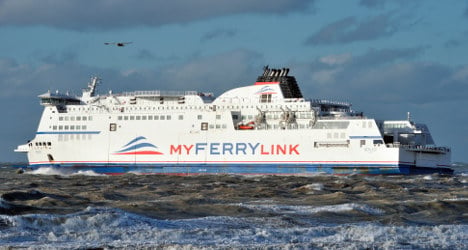MyFerryLink workers took strike action for the second time in a week on Monday that resulted in the closure of the port of Calais and ferry services to and from the UK being cancelled.
All ferry services between Calais and Dover in the UK are affected.
A spokeswoman for the port of Calais said motorists are advised to avoid the port and to change their journey plans. “Ferry traffic has been completely suspended,” she told The Local.
Negotiations are currently ongoing to try to resolve the dispute but with MyFerryLink set to cease operations on Thursday, port authorities are concerned strike action could continue.
A source at the port told The Local: “We are a collateral victim in all this as are the other companies who operate here.”
Confused and frustrated passengers took to social media to complain about not being able to board their ferries.
Can't enter the UK as #Ferry employees at the #Calais port are on strike 🙁 #StuckUp #HotDay
— خادموف (@KhadimDurrani) June 29, 2015
MyFerryLink had wanted extra time to find a solution but on Monday a court in Boulogne dismissed their appeal, which prompted the latest strike action.
NO ENTRY: Port of Calais blockaded by French strikers – http://t.co/6hsaDgKhMx pic.twitter.com/eFEPLsRIrQ
— Kent News (@news_in_kent) June 29, 2015



 Please whitelist us to continue reading.
Please whitelist us to continue reading.
Member comments